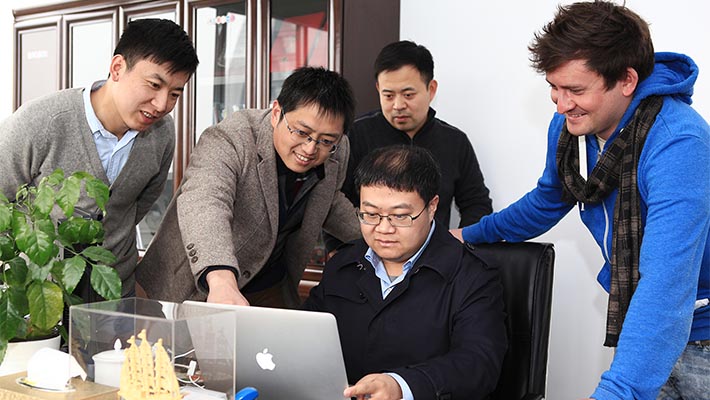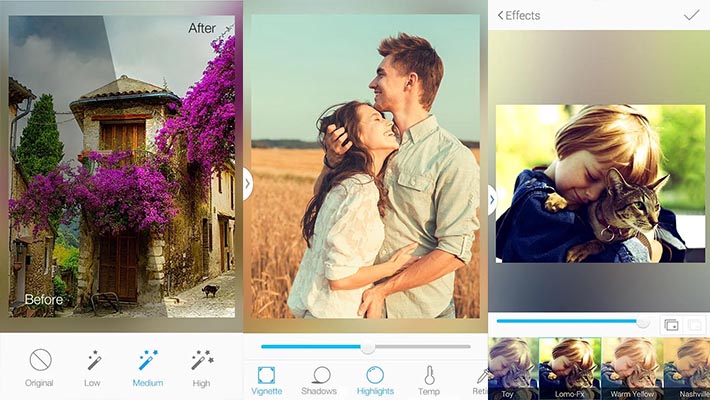Affiliate links on Android Authority may earn us a commission. Learn more.
Meet the Devs - Chengdu Everimaging Co., Ltd
Published onAugust 26, 2014

Name: Sharon Lee
Developer Name: Chengdu Everimaging Co., Ltd
Country: China
Website: Fotor Official Website
Google + Profile/Page: Everimaging
How many people on your team? 80

Apps
What level of experience do you have with coding and development?
As we all know, the level that a product can achieve is no longer decided by the coding and experience of some individuals. The level of the product is decided by the experience and capacity of the whole team. After years of development, most members of the Fotor team have more than 6 years of experience with large-scale project development. In the meantime, we kept building the team’s structure. The average age of the team is 25-28, so we are full of energy and able to respond quickly. The Fotor team is powerful and maintains sustainable development capacity in the industry.
What level of experience do you have with design?
Everimaging has been developing mobile apps since its establishment in 2009, starting with iOS. One year later, we began to develop Android versions. With rich experience in the design field of mobile UI and UE, the design team has kept in touch with developers all over the world and learned from them all the time. In light of this, we are quite right in believing that our team is good both at home and abroad.
What apps have you made?
Fotor Photo Editor, Fotor HDR, SnapStory.
How do you monetize your apps?
In-app purchase items.
What can Android do to improve?
The issues of severe fragmentization show up in aspects such as various devices, brands, versions and resolutions, which causes so many headaches for the developers.
As for the normalization of the apps, GooglePlay did provide the developers with a way to submit apps uniformly. However, it is not the only one. Every area, every language and every brand has their own application market. In order to make the apps popular, the developers would consistently work on the standardization of the versions, the compatibility and multi-language, but still the needs of the customers cannot be met.
As for the utilization of the devices, the multitasking background of Android provides humanized solutions under lots of situations, but it also occupied a great amount of system resources, which makes the users’ devices slow and causes crashes. And these all lead to bad experience for the users.
Why did you choose Android? Do you develop for other platforms? What are the differences between them?
Because Android is an open platform, it’s easier to find partners than other platforms so that developers can complete and promote products in a way of their own, without being forced to go a certain way. Therefore, Android can expand to more markets easily. We do develop for other platforms. As a unified platform for the software and hardware, iOS has forged the best user experience. But Android has given everyone a chance to use smartphones. From the very beginning, Android has covered the mid-lower mobile device markets. And in the process of rapid development, Android is not only used in mobile markets, but also in the field of laptops, televisions, even washing machines and refrigerators.
What are your thoughts on iOS and Windows 8?
IOS: closed, devices are unified, users are high-value (they are more willingly to pay for apps which reflect a good experience.)
Windows8: Open but authority-requested, apps have better normalization, too few users.
What do you think of the Android design guidelines?
Design instruction does bring us some convenience in some aspects:
It helps to define a new design standard, which allows the android devices of different versions and brands to maintain unity and normalization in aspects such as colors, interactive operation and component using.
It is not compulsory, and developers can still realize the goal according to their original product design.
It can help to combine the system design and the product more closely and reduce the learning cost of the customers and improve the user experience. Besides, it can help to reduce the communication costs between the designers and developers and make them achieve the product goals more easily.
What are your favorite apps?
- Dropbox: the stable speed and function of synchronous data, a preview of various kinds of files, good synchronization algorithm of different files and various kinds of ways to promote free space.
- Evernote: multi-platform, write down and look through at any time, nice mobile recording experience.
- Any.do: Clean interface, full functions, synchronizes with Google calendar which is key
- Path: wonderful user experience and UI design
- Instagram:clean and plain interactive experience
- VSCO: excellent filters can help users edit great photos.

What has been your experience working with Google?
Google is worth being respected. Its ability to innovate, team concept and unrivaled courage is an example for us. Indeed, Fotor’s Android Team is growing.
What does the future of development look like?
In the process of Fotor’s development, many complicated and professional techniques are used, all of which reflect the wisdom and hard work of engineers and the professional requirements of program development. However, this is not the future. Times are changing, programming languages are getting simpler to develop and easier to learn. Meanwhile, developing tools are stronger and easier to use. We will find that everyone is able to transform his/her idea to a relative product using a strong and easily-used tool. In the future, “developing” will be not only referred to developing something, but a real creation process. Like pianists just need a piano to play the melody that is just taken into shape so he doesn’t need to care about how the keys work.
What tips do you have for aspiring developers?
There is a request in Fotor: Never stop learning, never stop trying, and never stop thinking. That’s because we are creating the future.
We want to thank Sharon Lee for chatting with us in this week’s developer interview! If you’re a developer and this looks like something you’d like to do, check out our Meet the Devs form! We look forward to hearing from you.